
- Josh Kuckens
- Jacob Plihal training at Craftsbury Outdoor Center ahead of the 2024 Paris Olympics
Rowing isn't for the weak-kneed or those who prefer to sleep late. A typical training day starts at sunrise, when rowers arrive at the boathouse and gently lower their racing boats, called rowing shells, into the pond, lake or river. In ideal conditions, the water is still as glass, making it easier to stroke the long and narrow shell swiftly across the surface. When the oar blades catch the water with pinpoint synchronicity, creating a dotted line of mini whirlpools, the sport is sublime, the very definition of flow.
For decades, Vermont has been known for producing more winter Olympians per capita than any other state — think natives Suzy Chaffee, Billy Kidd, Hannah Teter and the Skiing Cochrans. This year, it's no mere stroke of luck that the Green Mountain State is sending seven world-class rowers to the summer Olympic Games in Paris: one Vermont native and six who have spent years training here. Seven Days caught up with two of them: Jacob Plihal, a sculler who trains in Craftsbury; and Billy Bender, a sweep rower from Dartmouth College who grew up in Norwich and trained on the Connecticut River.
These athletes hail from two communities that, in their own ways, have become national rowing powerhouses. Plihal, a Washington State native, did most of his Olympic training at the Craftsbury Outdoor Center, home to Green Racing Project and the oldest rowing camp in North America. In 2008, married couple Judy Geer and Dick Dreissigacker created a nonprofit that purchased the outdoor center and turned it into a world-class, multisport training facility. Dreissigacker was an Olympic oarsman who competed in the 1972 Summer Games in Munich. Geer rowed in the 1976 and 1984 Olympics, and she qualified for the 1980 games in Moscow, which the U.S. boycotted to protest the 1979 Soviet invasion of Afghanistan. In 1976, Dreissigacker and his brother, Pete, founded Concept2, a rowing-equipment manufacturer headquartered in Morrisville. Since then, the Concept2 ergometer, or "erg," has become the gold standard for training rowers at all levels.
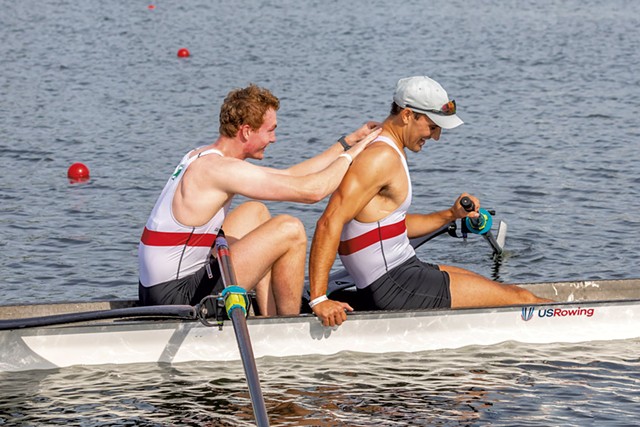
- Courtesy Of row2k.com
- Billy Bender, left, and Oliver Bub after qualifying at the Olympic trials in April
Bender's path to the Paris Games began in the tiny Upper Valley town of Norwich, which has itself produced more Olympians per capita than nearly any town in the country. As author and sports journalist Karen Crouse wrote in her 2018 book, Norwich: One Tiny Vermont Town's Secret to Happiness and Excellence, the community's outsize ability to rear world-class competitors "is a product of a collective mind-set that the Olympics are not the pinnacle of an athlete's life but merely a fun stop on the way to achieving other longer-lasting dreams."
Vermont's world-class rowers will compete in different styles. In sculling, each rower holds two oars. In sweep rowing, sometimes called crew, each rower holds a single oar, either on the port or starboard side. In both, the rowers face backward to their direction of travel, seated in shells that are nearly as long as a Greyhound bus but barely wider than the rowers' hips. In single and double shells such as those Plihal and Bender will race, there's no coxswain guiding their path to the finish line.
Whether Vermont's elite rowers strike gold in Paris or simply prove their personal mettle, the biggest waves they make could be on the next generation of Green Mountain athletes.
— K.P.
Rockin' the Boat
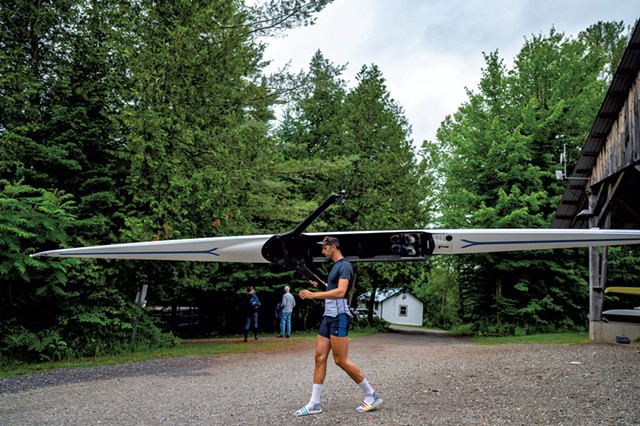
- Josh Kuckens
- Jacob Plihal
Jacob Plihal
- Age: 28
- Hometown: Vashon Island, Wash.
- Training center: Green Racing Project, Craftsbury Outdoor Center
- Sport: Men's single sculls
It's a boating metaphor, conveniently enough, that best describes Olympic rower Jacob Plihal: even-keeled. When his racing shell slices the water, opposing forces strike the perfect balance: drive and recovery, power and grace, aerobic fitness and anaerobic strength.
In a similar fashion, it's Plihal's even temperament that got him into rowing in the first place, then carried him through 11 years of training and competition, victories and setbacks, to Lucerne, Switzerland. There, in May, at the 2024 World Rowing Final Olympic & Paralympic Qualification Regatta — the so-called "Last Chance Regatta" — he surpassed 28 rowers, including several former Olympians, to claim the last spot at the 2024 Summer Games. One of those left in Plihal's wake was Kjetil Borch, Norway's two-time Olympic medalist and world champion.
Plihal, a 28-year-old from Vashon Island, Wash., is the first American since 2012 to qualify for the men's single sculls, the most competitive rowing event in the world. He had initially hoped to row in a quad, but he was cut from that boat. Then it looked like he might row with Norwich native Billy Bender in the pairs boat that had already qualified, but Bender's original rowing partner, Oliver Bub, became available.
With two weeks to train, Plihal and his coach, Steve Hap Whelpley of Craftsbury's Green Racing Project, decided he should vie for the single. First, he needed to qualify to compete in Lucerne. With that hurdle cleared, he arrived at the Last Chance Regatta to face 29 other rowers competing for two slots. Plihal wasn't favored. But he made the right decisions in every race "in a way that it was flawless," said Josy Verdonkschot, head coach of the U.S. Olympic rowing team.
Plihal won his quarterfinal and semifinal races, and he finished his final second to Mihai Chiruţ of Romania, securing his ticket to Paris.
"He surprised the world," Verdonkschot said.
Six-foot-10 and 220 pounds, Plihal is physically imposing but a humble athlete and person, said Whelpley, who has nicknamed the rower with the seven-foot wingspan "Gentleman J."
Plihal has logged thousands of miles on Craftsbury's Great Hosmer Pond since joining Green Racing Project four years ago. The 15-year-old, four-sport training program is sending five other rowers to this year's Olympics besides Plihal: Grace Joyce of Northfield, Ill., and Emily Delleman of Davenport, Iowa, in the women's quadruple sculls; Daisy Mazzio-Manson of Wellesley, Mass., in the women's four; and alternates Emily Froehlich of Fishers, Ind., and Alexander Hedge of Morristown, N.J.
Housed at Craftsbury Outdoor Center, a cross-country skiing and sculling center three miles from a paved road and farther still from reliable cell service, Green Racing Project fills the gap between college athletics and international competition in four sports: rowing, cross-country skiing, biathlon and running. Elite athletes share trails, the lake and the dining hall with amateurs of all ages.
Rather than simply accepting the fastest athletes, the program seeks those who want to become part of its community and who align with its mission: work to reach athletic potential, use and teach sustainable practices, and protect and manage the surrounding environment.
The program is funded by the outdoor center, and athletes pay no tuition or fees. In exchange for coaching, travel support, equipment, lodging and meals — running is the only nonresidential program — athletes are asked to work about 10 hours a week so they get a break from training "and maybe learn some things that can go on a résumé later in life," cofounder Judy Geer said. Jobs may include trail maintenance, growing vegetables for the dining hall, volunteering in local schools and coaching kids' programs. Athletes with engineering and architecture skills helped design the center's net-zero lodge.
"We want them and we want this place, I think, to be an embodiment of finding a good balance between sport and the rest of their lives," said Whelpley, head rowing coach since 2017.
The rowing program is unlike any other in the country, U.S. Olympic head coach Verdonkschot said. Of the three or four high-performance training centers in the U.S., Craftsbury's is the only one to provide such a high level of support, he said.
Green Racing Project started as a senior project at Middlebury College. Cross-country skier Tim Reynolds, in search of a way to continue his own training after graduation, wrote a proposal for an environmentally aware racing team. His faculty adviser was environmentalist, author and educator Bill McKibben.
Just one year earlier, Geer and her husband, Dick Dreissigacker, had turned Craftsbury Outdoor Center into a nonprofit with similar goals. "And so it just all came together," Geer said. Reynolds graduated in 2009. That year, he and five other cross-country skiers were Green Racing Project's first athletes.
The program has sent about 15 athletes to the Olympics, counting this year's rowers, Geer said. Among them are Geer and Dreissigacker's daughters, Hannah and Emily, who competed in biathlon; Craftsbury native Susan Dunklee, the most decorated female American biathlete; and cross-country skier and Orleans native Ida Sargent. Additional Olympians have come through the program before going on to train elsewhere.
Plihal appreciates Craftsbury's rural setting, he said. Unlike other elite training, which he likened to a "meat grinder," Green Racing Project strives to sustain not only the environment but also its coaches and athletes, he said, summing up its philosophy this way: "Hey, you're gonna do this really hard pursuit. But let's make sure we do it in a way that you're not gonna leave and be broken for the rest of your life."
Plihal started rowing as a junior in high school after he sheared the cartilage off the back of his right kneecap in a freak accident playing baseball his sophomore year. A physical therapist suggested he try rowing because it would be easier on his knee. "And I was like, No, this is a stupid sport. I don't want to go and wear spandex and row these silly little boats around," Plihal recalled on the "Steady State" podcast.
Basketball was his sport, though he wasn't great at it, he said. He played for one season after his injury — his dad remembers him limping on the court — then tried rowing. "And I fell in love with it," Plihal said.
Jim Plihal said his son never appeared devastated to leave basketball behind. "He's so level-headed," he explained. "If one door closes, another one opens. That's how he kind of sees life."
Competing as a single requires specific mental and strategic skills. "It's a different game," Verdonkschot said. Rowers find camaraderie in an eight boat. "You've got a coxswain who's shouting, giving their calls. And obviously, it's a spectacular event. It's really fast," he said. The single is slower. "There's nobody that is shouting at you. Only your muscles are screaming."
Single rowers must gauge when to conserve energy and when to drive hard. A rower in a quad or an eight who has an off stroke is swept along by the momentum of their teammates, Whelpley said, adding, "If Jacob takes an off stroke, that's like him and his whole boat just had an off stroke."
Signs of Plihal's drive and focus appeared early. His preschool teacher told his parents he was the most stubborn student she'd ever had. "He would be so fixated on building a Lego set that if you were trying to get his attention, you literally had to yell at him to break him out of his trance," his dad recalled.
Upon entering college, Plihal was told he couldn't study architecture and row because both demanded so much time, his dad said. But Plihal went to Northeastern on a rowing scholarship, studied architecture and graduated in 2018, magna cum laude.
It's all about balance.
Long and narrow, Great Hosmer Pond is well suited for training rowers. It's about 3,000 meters in length — a rowing race course is 2,000 meters — and its steep embankments provide shelter from wind. Plihal knows every cedar and white pine along the shore. Each loon he spots — there are seven on the lake this summer — requires a self-imposed "loon lap," which is 10 hard strokes.
Pursuing Olympic rowing is a selfish endeavor, he has acknowledged. For years, he has asked himself if he's good enough and how long he can put off a career and getting on with the rest of his life.
That first question is answered now. Competing at the Olympics doesn't make him nervous. At least that's what he said in late June, after one of his last Vermont pre-Olympic training sessions, conducted in the rain, on Great Hosmer.
"What do I have to lose at this point? I get to go race at the Olympics," Plihal said. Nerves will come, he added. At that point, he will run through his prerace routine and remind himself, "I've prepared. This is my best self."
In the starting platform, he will sit, take deep breaths, and look to his left and to his right at his opponents. "All right," he will think. "We're about to run down this track."
— M.A.L.
Something in the Water
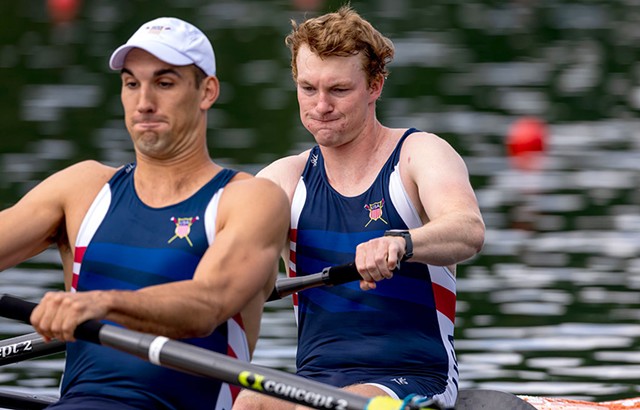
- Courtesy Of row2k.com
- Oliver Bub and Billy Bender rowing at the World Cup
Billy Bender
- Age: 23
- Hometown: Norwich, Vt.
- Training center: Dartmouth College
- Sport: Men's pair
At 9 years old, Billy Bender knew it was a big deal that someone from his hometown of Norwich was competing in the Olympics. In 2010, his elementary school, Marion Cross, hosted a send-off for local moguls skier Hannah Kearney, who was on her way to the Winter Olympics in Vancouver. He still has the poster Kearney autographed for him the next time he saw her: at a celebration on the Dartmouth College campus, across the river in Hanover, N.H., when she returned home with a gold medal.
Though no one knew it at the time, Bender's childhood meet and greet with Kearney was a passing-of-the-torch moment from one Norwich Olympian to another.
Bender, now 23, is a rower, not a skier. But like Kearney, he went on to attend Hanover High School and then Dartmouth, training there with dreams of representing the U.S. on the world stage — and adding to Norwich's unique Olympic legacy.
Today, Bender is the youngest member of the U.S. Olympic rowing team. He'll compete in Paris with his rowing partner, Dartmouth graduate Oliver Bub of Westport, Conn., in the men's pair. The duo's trainer is another rower with Upper Valley ties: Dartmouth crew coach Wyatt Allen, himself a two-time Olympian and gold and bronze medalist.
Given the outsize number of athletes the town of 3,600 has sent to the Olympics over the years, one might wonder if there's something in the water in Norwich. For rowers, perhaps there is.
"The Connecticut River is maybe the nicest place to row in the country," said Ryan Kelliher, Bender's older half brother.
But it takes more than a scenic river to build a successful rowing community. For one thing, it's an expensive sport: A single, eight-person shell such as the boats Hanover High and Dartmouth use can cost upwards of $30,000. Norwich is affluent — it regularly ranks at or near the top for per-capita income in Vermont — but the community also boasts a wealth of rowing expertise.
"There's a weird amount of people who've rowed in the Olympics or at world championships" from the area, said Kelliher, a world-class rower himself. "They put down roots that end up in coaching and pass it on to the next generation."
Those coaches include the late Blair Brooks, who was the Benders' neighbor. The former captain of Harvard University's undefeated "Rude and Smooth" crew of 1975, Brooks coached at Hanover High and introduced Bender's three older brothers to rowing. As a result, Bender spent much of his childhood watching his siblings race before trying the sport himself at age 14.
Now Dartmouth's stroke-seat rower — the oarsman who sets the pace for the boat — Bender credits his achievements to a stroke of genetic luck. Six-foot-five and 200 pounds, he has an ideal physique for enduring the rigors of a sport that he said "never gets easier. You just go faster."
Unlike many Olympic athletes who've been competing in their sports since childhood, Bender was a late bloomer. When asked what made his brother so successful after a mere decade of rowing, Kelliher laughed.
"I wish I knew, so that I could use it," he said.
Long before setting his sights on the Olympics, Bender graduated from high school with what at the time seemed like an impossible goal: rowing for Dartmouth's heavyweight crew team. He even took a gap year just to train. But ultimately, it wasn't Bender's size, talent or score on the erg that convinced coach Allen. It was his persistence.
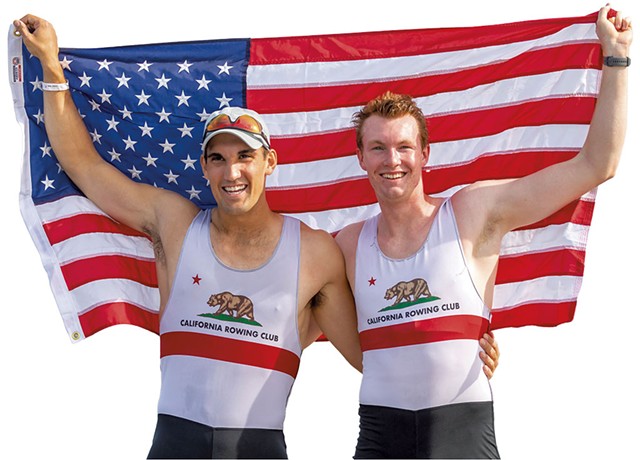
- Courtesy Of row2k.com
- Oliver Bub and Billy Bender
"Athletically, as a high school senior, he was a bit behind some of the other recruits we were looking at," Allen recalled. "But between his passion for the school and program, his impressive academic record, and his confidence that he was going to continue developing, we decided to take a bet on him. Billy has made that bet look really smart."
"Billy's always been crazy competitive about everything," his brother Danny Bender said. That, along with his humble work ethic and a coachable attitude, allowed Billy to prove himself in a grueling sport. He has a "willingness to be in the pain locker" for extended periods of time, Kelliher said, "and he's really good at that."
The "pain locker" is familiar to anyone who's ever sat behind an oar. Beyond the calluses and backaches, the true test of a rower is a readiness to dig into the water again and again, even when the finish line feels out of reach and there's nothing left in the tank.
"When your body is saying stop, you have to come up with reasons to convince yourself to keep going," Bender said.
What are his reasons? For one, there's the chip on his shoulder from when all signs told him to give up. Just weeks before Bender and Bub qualified for the Paris Games, both rowers were cut from their first-choice boat — the eight. Rather than quitting, the duo, who were already friends and sharing an Airbnb in Sarasota, Fla., for the Olympic trials, decided to take one last stab at the team.
"We'd rowed the pair before. We knew it's a good combination, and we both had a lot of confidence in each other," Bender said.
Bender's other motivation: his never-ending pursuit of speed. The young rower described the sensation when the boat feels like it's moving quicker than it should — an apt metaphor for his own accelerated path to the Olympics.
"When things go well, it feels like you, the other people in the boat, the shell — it's all one object moving together," Bender explained. "You can feel it through the seat you're sitting on, you can feel it through your hands on the oar, and you can feel your place in the system.
"You can feel it, and it's fast," he went on. "That's the hard part. That's what everyone's chasing."
Bender and Bub achieved that sensation during their qualifying race in Sarasota in April. There, in perfect sync, the pair sliced through the water, outracing five other boats to secure a spot on Team USA.
While a podium finish is a long shot for the Upper Valley pair, Bender's family members said they're stoked to watch his first Olympic race this Sunday, July 28.
It's a well-deserved opportunity for Bender, whom Kelliher described as a "quiet hard worker" with a silent intensity that traces back to their unassuming yet remarkable hometown.
In June, Bender returned to Marion Cross School, where he and other students once wished Kearney well before she left for the 2010 Winter Games. Now, wearing a Norwich baseball cap and ribbon medals the kids made for him, it was Bender's turn.
Norwich's retired recreation director Jill Kearney-Niles — Hannah Kearney's mother — addressed the crowd of eager faces. Referring to Bender, she told the group: "This could be any of you — who's next?"
— N.S.
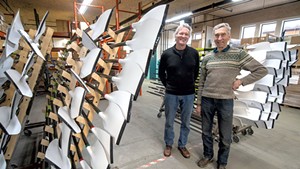





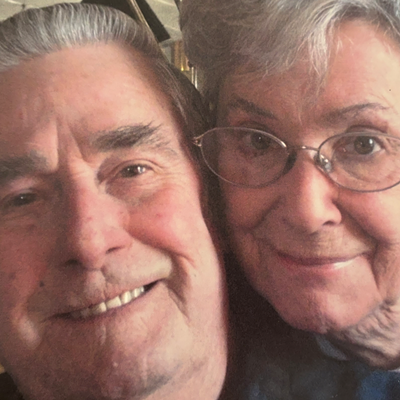
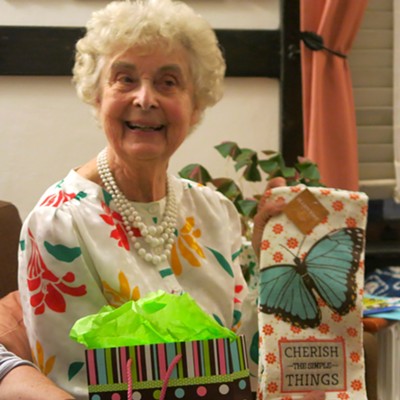
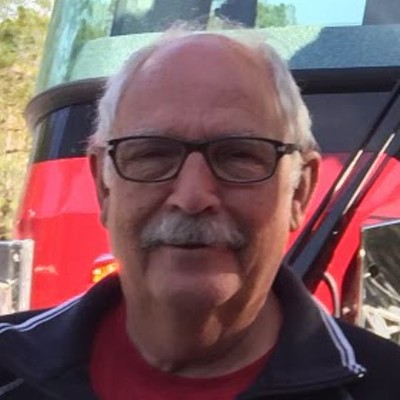
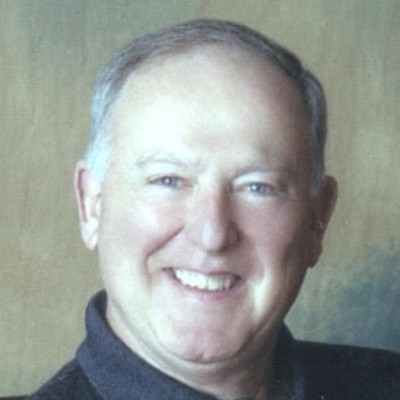
Comments
Comments are closed.
From 2014-2020, Seven Days allowed readers to comment on all stories posted on our website. While we've appreciated the suggestions and insights, right now Seven Days is prioritizing our core mission — producing high-quality, responsible local journalism — over moderating online debates between readers.
To criticize, correct or praise our reporting, please send us a letter to the editor or send us a tip. We’ll check it out and report the results.
Online comments may return when we have better tech tools for managing them. Thanks for reading.